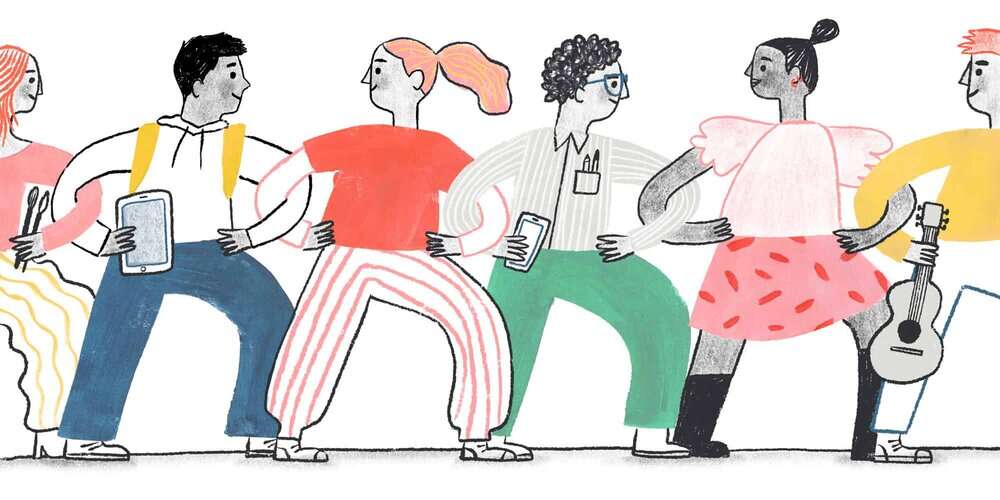Supporting Siblings

When one child has a mental health condition, you may wonder how much you should share with their siblings. Will you break the trust of the child who is struggling? Will you confuse or scare siblings? The key is open, honest communication.
If mental health struggles aren’t discussed openly, siblings who notice shifting family dynamics or behavioral changes will indeed be left scared or confused — because they don’t know what’s going on. Moreover, when we don’t talk about mental health conditions, gloss over them, or pretend everything is fine when it’s not, we reinforce stigma that they are somehow taboo and shameful.
Read
- Opens in a new tabHow Stigma Affects Mental Health from McLean Hospital
- Opens in a new tabStories | Deconstructing Stigma from McLean Hospital. Hear from people affected by mental health challenges as they describe how they rise above misconception.
Talking about a sibling’s mental health condition
A young person struggling with a mental health condition needs support from the whole family. In fact, everyone’s emotional well-being can benefit from open conversations around mental health.
If your child has multiple siblings, talk with each one individually. Let them know that you’re speaking with everyone in the family and want each person to have the chance to tell you personally how the situation may be affecting them. Share with each child that you’re having these conversations to help the family work together as a team through a challenging time or diagnosis. The idea is to normalize mental health conditions and conversations about them. This can help reduce stigma.
As with any sensitive conversation, talk in a comfortable, casual setting. Start by asking what your child has noticed in their sibling’s mood or behavior and what they think is going on. Asking questions gives siblings the opportunity to share. Let them know that they will not burden you by sharing their feelings.
Some siblings might reveal fears or misconceptions. Others might disclose feelings like jealousy, anger, or resentment. Maybe they feel a loss with a brother they felt closer with (“He used to have my back”) or that a sister’s behavior just perpetuates a stigmatizing label (“I always knew she was weird”). Admitting that a sibling’s mental health condition is hard is not being selfish or uncaring. Listen carefully and without judgment.
Encourage kids to understand that their sibling is working through the challenges they’re facing, which takes incredible courage. Also remind them that their sibling is not defined by their mental health condition.
For more about sibling support:
Read
- Opens in a new tab5 Ways to Support Siblings of Kids With Mental Health Disorders from Child Mind Institute
- Opens in a new tabManaging Sibling Conflicts: The Obvious and Hidden Battles from The Clay Center for Young Healthy Minds
Watch a video
- Opens in a new tab6 Ways to Help Siblings Get Along from Child Mind Institute
Common questions siblings might ask
It’s important to tell all children — the one diagnosed and any siblings — that there is nothing wrong with someone who has a mental health condition. Explain that mental health providers work to help someone feel better the same way their clinician would help them with a broken arm or an ear infection.
Gently clarify any misunderstandings and explain the mental health condition using simple, age-appropriate language and proper terminology rather than euphemisms. Opens in a new tabThe National Institute of Mental Health and Opens in a new tabNAMI are two great resources to help everyone understand different mental health conditions.
Depending on a sibling’s condition, family members might notice various behaviors such as sadness, withdrawal, agitation, aggression, or issues around eating or sleeping. Siblings might feel upset if these behaviors are not otherwise allowed within the family, so that it seems like an exception is being made for one person.
Start by validating your child’s feelings (“I understand it’s frustrating to see your brother get so upset”). Then make clear that the affected child isn’t just having an isolated meltdown or a bad day. Explain how the mental health condition affects the sibling’s mood, feelings, or behaviors, and that medical providers are working to help.
Reassure your child that no one is ever at fault for a mental health condition, and no one can cause a mental health condition in someone else.
In a family where rules and consequences are usually consistent, it can feel confusing and unfair when one child is seemingly being treated differently. Again, first validate a sibling’s feelings (“I hear that this feels unfair and that’s hard”), and then explain that when someone has a mental health condition, their needs are different. That may mean some adapting of the family rules and norms.
For example, if anxiety is causing a child to miss school, let their sibling know how overwhelming that anxiety might feel and that it’s a problem being treated by a mental health specialist, not corrected by consequences at home. Explain what steps are being taken as part of treatment, such as medication or weekly therapy appointments to work on coping skills.
While sometimes more than one person in a family can develop a mental health condition — whether the same condition or a different one — none are contagious. Reassure siblings that if they were to develop signs of a mental health condition, you would talk to their clinician and get them help, too.
Most young people are used to going to a medical appointment, getting medicine, and generally feeling better within a week or two from common physical conditions. They may be confused if a sibling’s mental health symptoms continue over time, or may not understand why their sibling has good days, weeks, or months, and then seems to backtrack.
Explain up front that mental health conditions can take time to improve. Clinicians don’t always have straightforward answers or know exactly which treatments will be most helpful — often treatment might involve learning new skills, taking medication, and/or talking to counselors or therapists, and results aren’t usually immediate. Share that everyone is working to help as much as possible.
Siblings may need their own support from friends or another trusted adult around what’s happening at home, but they may not know what is okay to share about a sibling's mental health. Talk with your child about what information should be kept private and what information can be shared, with whom, and how to do so with boundaries. Practice language they can use if a friend says something like, “What’s wrong with your sister?”
Make clear to siblings that it is not their responsibility to care for their brother or sister or make them better. You, their siblings’ medical providers, and other caring adults make up the child’s support team. Praise any words of compassion or offers of help, and let them know how they might be able to specifically support their sibling (giving them space, offering to watch a video or play a game with them).
Addressing your worries
As a caregiver, you naturally will be concerned about how one child’s mental health condition affects their siblings. Will siblings feel isolated? Are you giving them enough attention, when so much of your energy goes to the child who is struggling? Is one child worrying too much about the sibling who is ill, instead of just enjoying their childhood? These concerns are perfectly normal. It may be helpful to discuss them with a mental health provider (your child’s or your own).
It is also helpful to know that as young people with mental health conditions learn coping skills, so too do their siblings. These experiences help young people develop important life skills like resilience and compassion for others. Mental health conditions present challenges for a family, but they also present opportunities to grow as people and as a family together.
For more, consider:
NAMI's Opens in a new tabFamily-to-Family program, a free educational series on coping and problem-solving for family, significant others, and friends of people with mental health conditions.
National Alliance on Mental Illness (NAMI)
The National Alliance on Mental Illness (NAMI) is the nation’s largest grassroots mental health organization dedicated to improving the lives of individuals and families affected by mental illness.











